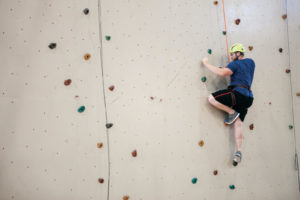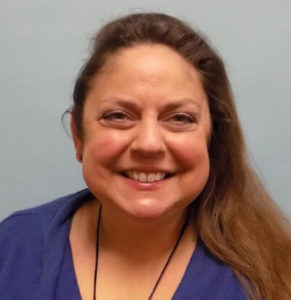 Poet E.E. Cummings once wrote, “To be nobody but yourself in a world which is doing its best, night and day, to make you everybody else – means to fight the hardest battle any human being can fight; and never stop fighting.” I have that quote hanging by my desk. It reminds me why I do what I do for myself and for others and of the courage it takes to work for both.
Poet E.E. Cummings once wrote, “To be nobody but yourself in a world which is doing its best, night and day, to make you everybody else – means to fight the hardest battle any human being can fight; and never stop fighting.” I have that quote hanging by my desk. It reminds me why I do what I do for myself and for others and of the courage it takes to work for both.
Every day the world sends messages to our egos telling us who and what we are. These messages also dictate who and what we should want to be, constantly encouraging us to compare ourselves to others. This message sending world is a human construct, material and subjective. It is not a spiritual message of love and tolerance. It’s no wonder we in recovery can feel so out of place in this world, especially in early recovery. Our program tells us a spirit of love and tolerance is our creed and yet our world tells our egos that an attitude of proud judgement and comparison is our way. The message sending world is selfish and wrong. It’s also a willing participant in the disease of addiction.
The disease of addiction could not thrive without the support of social human constructs. And yet, instead of promoting clean living, everywhere we look social media, TV, movies, music, drugs and alcohol are glorified and their use is commonplace. Those who choose not to use, and those in recovery, are considered square and dull by popular culture. And those in early recovery fear that message is true. I talk to patients everyday who worry about what will happen when they get out of treatment. With whom will they spend time? What will they do for fun if they aren’t drinking and drugging? Do they really need a recovery community instead of their old friend? These are legitimate concerns propagated by a culture of indulgence and instant gratification. So, how do those of us in the treatment field combat such strong messages?
For me, the key to success in recovery lies in Step 11. It’s written on page 98 of the Twelve Steps and Twelve Traditions, “There is a direct linkage among self-examination, meditation and prayer. Taken separately, these practices can bring much relief and benefit. But when they are logically related and interwoven, the result in an unshakable foundation for life.” Those are simple instructions that also happen to be difficult to carry out. In order to practice the concepts of 12-Step recovery, one must be made aware of the spiritual principles. On the common list of spiritual principles, courage is named for Step 4, and where I agree with that principle for that Step, I also believe courage is the primary principle required for all of the Steps (and for most anything else in life). It takes great courage to admit we are powerless.
It takes even more courage to ask for help and to believe a Power greater than ourselves is the bedrock on which 12-Step recovery is based.
Yes, it takes courage and at least a sliver of faith and a dash of hope to begin this program, but it also takes courage to speak the truth, to set boundaries and to self-advocate. Once we become aware that addiction is a disease, we must come to accept that diagnosis applies to us. Then and only then can we begin the important actions required for a “personality change sufficient to bring about recovery…Most emphatically [I] wish to say that any alcoholic capable of honestly facing his problems… can recover, provided he does not close his mind to all spiritual concepts… Willingness, honesty and open-mindedness [and courage] are the essentials for recovery.” (AA p. 567 and 568)
 Angela Moscheo Benson is a Spiritual Director at Cumberland Heights. Angela earned a Masters of Divinity at Union Theological Seminary in New York City where she lived and worked for many years before returning to her hometown of Nashville. Angela’s focus is on the spiritual principles of 12-Step recovery and her spiritual pedagogy is concept focused and experiential.
Angela Moscheo Benson is a Spiritual Director at Cumberland Heights. Angela earned a Masters of Divinity at Union Theological Seminary in New York City where she lived and worked for many years before returning to her hometown of Nashville. Angela’s focus is on the spiritual principles of 12-Step recovery and her spiritual pedagogy is concept focused and experiential.
Angela is married to her childhood sweetheart, and they share an active home with her son and their seven rescue dogs.










